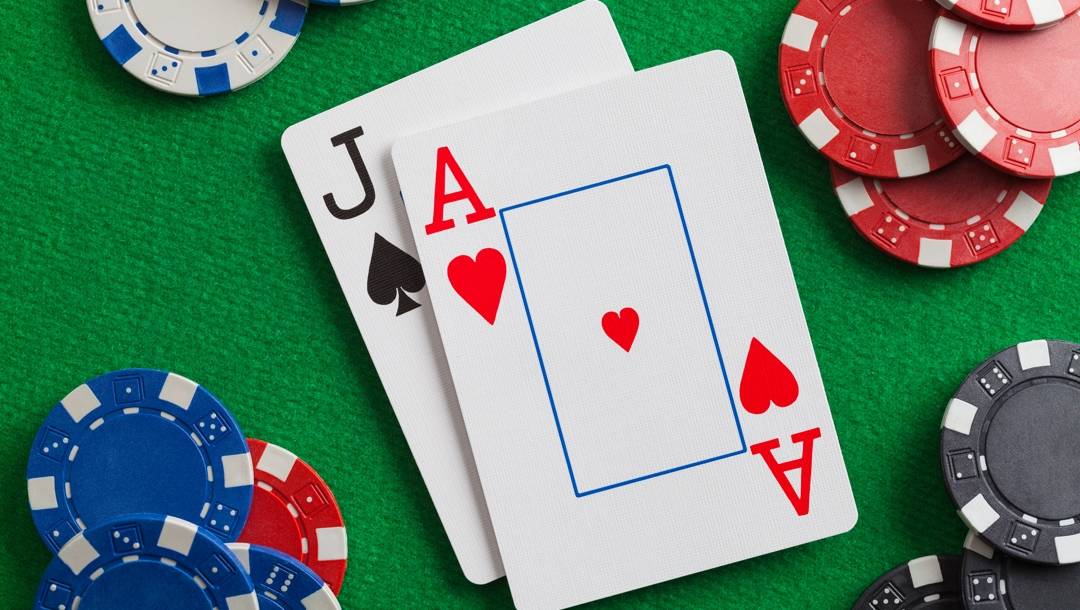Poker is many things to many people who enjoy online gambling. For some, it’s a fun way to pass the time with friends. For others, it’s a serious business that demands the same dedication and commitment as any other professional sport. The majority of players probably fall somewhere in between these two extremes.
Whether you’re a recreational player or a would-be pro, there’s always something you can do to raise your game. It starts with building healthy new habits to become mentally and physically healthier and improve your poker skills. Responsible gambling is integral to a healthy and successful poker performance. All it takes is a little discipline. Take a closer look at how you can become better at playing online poker.
Meditate To Raise Your Mental Game
Poker is often classified as a mind sport rather than a game — for good reason. It takes a lot of mental energy and endurance to gauge risks, read opponents, call bluffs, and make decisions hand after hand. The trouble is that many players allow the things that life throws at them to leak into their decision-making process, and often, they are unaware that this is happening.
Many pros are turning to meditation practice to deal with this. Meditation is the ability to focus on elements of your mind and body at will and hold your attention there. Daily meditation is a tried and trusted way to strengthen your mental game, enhance your concentration, and improve your poker performance over long periods of time, especially in online poker tournaments.
A great book on the topic is “Yoga of Poker” by poker pro Andrew ‘Lucky Chewy’ Lichtenberger. It’s an accessible read designed to help all players gain a competitive edge through mindfulness and meditation.
Get Some Exercise

Mental energy depends, to a great extent, on physical energy. No matter how mentally acute you may be, you won’t be able to perform at your best if you’re physically unfit. As a result, it’s critical to do some physical exercise every day. According to the current Physical Activity Guidelines for Americans, adults need at least 150 minutes of moderate-intensity physical activity every week. You don’t have to sign up for CrossFit. A brisk 30-minute walk for five days a week will do.
It’s also recommended that you do muscle-strengthening exercises at least twice a week. Lifting weights, using resistance bands, and working in the garden are all good. If you struggle to motivate yourself to get off the couch, exercising with others can help. Why not round up some local poker players to form a fitness support group?
Feed Your Brain
The key to a healthy body and brain is a proper diet. Different foods affect your body differently, so be sure to mix things up. Green leafy vegetables top the list of foods that boost your brain and memory, thanks to their high levels of vitamin K, vitamin E, beta carotene, and lutein. Fish like cod, salmon, and anchovies are high in omega-3 fatty acids, which help prevent cognitive decline. Other great sources of omega-3 fatty acids are nuts, avocados, flaxseeds, and olive oil.
Another excellent brain food is berries. The reason they’re so bright is that they contain antioxidants and flavonoids, which help to ward off memory decline. Flavonoids have also been linked to brain processing speed, so it’s good to know they’re present in dark chocolate.
Adding these foodstuffs to your diet is a great way to raise your vitality levels, especially if you get enough sleep and remember to stay hydrated. If possible, avoid stimulants and depressants like coffee, alcohol, and nicotine since they fog your thinking and are liable to make you tilt.
Continuous Poker Skills Development

With a healthy mind, body, and diet as your foundation, you’ll be in good shape to develop good poker training habits. It starts with expanding your mind. There’s nothing quite like a good poker book to broaden your mental horizons, so make a new habit of reading one or two pages daily. A good place to start would be “The Theory of Poker” by David Sklansky, an undisputed classic that covers bluffing, psychology, odds, position, and other vital topics.
To complement your reading, work on your hand analysis. Find a poker forum, see what hand the experts are discussing, and try to work it out yourself. Post your results back on the forum and see how they compare. Do this daily, and your analysis will improve to the point that you’ll think like a poker pro.
Another healthy habit is to learn new poker concepts on a daily basis. Start by digging into frequently mentioned basic concepts like hand ranges, pot odds, and bet sizing. Can you explain them in your own words? It may be helpful to recruit another player as a study buddy.
Last but not least, keep your hand in. Playing a minimum number of hands every day is a surefire way to put your newly acquired poker skills into practice.
Positive Feedback
If you know how to improve at poker, you also know how to do better in life. One of the most healthy habits a poker player can adopt is to feed the lessons the game teaches them back into their life. The element of chance in poker teaches you to let go of the things you can’t control and make the best choices about the things you can.
Another lesson is to learn from failure. Stop, reflect on the process, and figure out what exactly is going on. Did you fail because you were unlucky or didn’t assess the situation correctly? If you see room for improvement, you’ll be in a place to do better next time the situation comes around.
Gamble Responsibly
Gambling can be an exciting form of entertainment with a great rewarding element, but it can also potentially become harmful if not practiced responsibly. Knowing how to gamble responsibly will help ensure that gambling remains a fun recreational activity and that it doesn’t become an addiction. Here are some tools that you can use at online casinos.
Setting Deposit Limits
Many reputable online gambling sites provide deposit limits to help you stay in control of your gambling. They limit the amount of money that you can deposit into their account. This means that you can set a maximum amount of money you can deposit into your account at any given time. This way, you have an effective way to stay in control of your spending, and you can enjoy a safe and secure gambling experience without giving in to the temptation to go over your planned budget.
Timeout
It’s vital to occasionally take a timeout from online casino sites to get a healthy break from consuming the vast array of online casino games, including poker. Reset your mind and re-evaluate your relationship with gambling. Timeouts can last anywhere from 24 hours to six weeks.
Self-Exclusion
When a player opts for self-exclusion on a gambling site, they will be unable to log into or use the site. The online casino will block all access attempts. This tool is used by players who are able to recognize that their gambling has become harmful to them. The self-exclusion tool lets you enter into a formal agreement not to gamble, and it is up to you to stick to that agreement.
Build Your Poker Skills at BetMGM
Looking to improve your poker performance? Register at BetMGM and join a growing online poker community. Find cash games with stakes to suit your budget or join exciting online poker tournaments, from daily freerolls to two-day Texas hold’em marathons with $1,000 buy-ins.
In between poker events, the online casino will keep you entertained with a broad range of online slots and classic casino table games. Think blackjack, roulette, and baccarat served up in the latest random number generator (RNG) and live dealer variations. Sign up to receive the BetMGM Welcome Casino Bonus, and start playing your favorite poker games.










